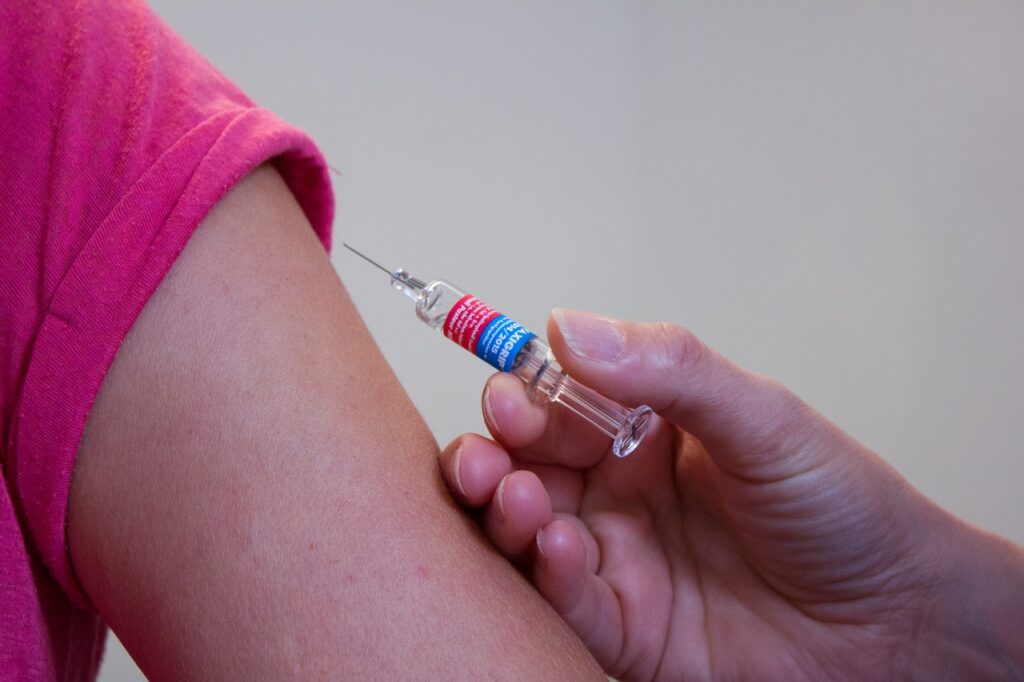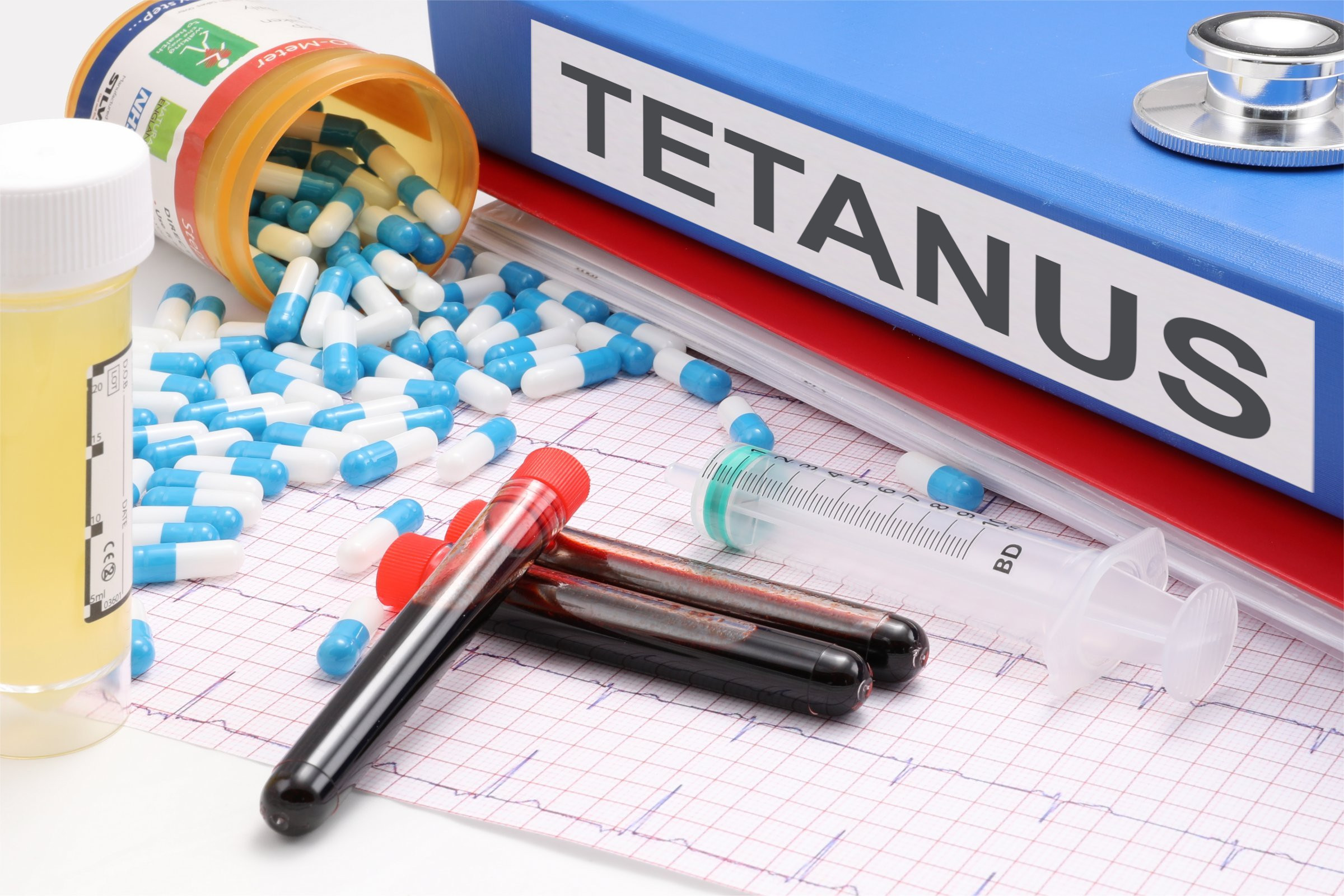Tetanus Symptoms: Understanding the Signs of Tetanus Infection – Tetanus, also known as lockjaw, is a potentially fatal bacterial infection that affects the nervous system. It is caused by the bacterium Clostridium tetani, which is commonly found in soil, dust, and animal feces. In this article, we will delve into the various symptoms associated with tetanus, its causes, diagnosis, treatment, prevention measures, and its impact globally.

Introduction to Tetanus
Tetanus is a serious condition characterized by muscle stiffness and spasms, typically starting in the jaw and neck muscles, hence the term “lockjaw.” It can progress to affect the muscles throughout the body, leading to difficulties in breathing and swallowing. Tetanus is a medical emergency that requires prompt treatment.
What Causes Tetanus?
The bacteria responsible for tetanus, Clostridium tetani, produce a toxin called tetanospasmin. This toxin affects the nervous system, causing the characteristic symptoms of tetanus. Tetanus is commonly contracted through contaminated wounds or cuts, particularly when exposed to soil, dust, or animal feces containing the bacteria.
Understanding Tetanus Symptoms
Early Symptoms
The early symptoms of tetanus may include:
- Jaw stiffness (hence the term “lockjaw”)
- Muscle stiffness and spasms, particularly in the neck and abdominal muscles
- Difficulty swallowing
- Stiffness of the neck and abdominal muscles
- Fever and sweating
- Rapid heartbeat
Progressive Symptoms
As tetanus progresses, the symptoms may become more severe:
- Severe muscle spasms that can be triggered by minor stimuli or even spontaneously
- Difficulty breathing, due to spasms in the chest muscles
- Irregular heartbeat
- High blood pressure
- Seizures
Diagnosing Tetanus
Tetanus is diagnosed based on clinical symptoms and a history of recent injury or wound exposure. Laboratory tests may be conducted to confirm the presence of the tetanus toxin in the bloodstream. Imaging tests such as MRI or CT scans may be performed to assess the extent of muscle stiffness and spasms.
Treatment Options
Hospitalization
Patients with tetanus require immediate hospitalization in a specialized intensive care unit. Treatment aims to control muscle spasms, prevent complications, and neutralize the tetanus toxin.
Medications
Antibiotics such as penicillin or metronidazole are administered to eliminate the tetanus bacteria. Tetanus immune globulin (TIG) may be given to neutralize the tetanus toxin.
Wound Care
Wound care is crucial in preventing further bacterial growth and toxin production. Cleaning and dressing the wound, along with surgical removal of contaminated tissue, may be necessary.
Prevention Measures
Vaccination
Vaccination is the most effective way to prevent tetanus. The tetanus vaccine is usually given as part of the DTaP (diphtheria, tetanus, and pertussis) vaccine series during childhood. Booster doses are recommended every 10 years throughout adulthood.
Wound Care
Prompt and thorough cleaning of wounds can prevent tetanus infection. Tetanus vaccination may be recommended for individuals with contaminated or deep wounds.
Immunization Schedule
Following the recommended immunization schedule ensures adequate protection against tetanus and other preventable diseases. Consult with healthcare professionals to stay up-to-date with vaccinations.
Tetanus and Neonates
Tetanus poses a significant risk to newborns if their mothers are not adequately vaccinated. Neonatal tetanus occurs when newborns are exposed to tetanus bacteria during childbirth, usually due to unhygienic delivery practices.
Tetanus Myths vs. Facts
There are several myths surrounding tetanus and its prevention. It’s essential to distinguish fact from fiction to ensure accurate information is disseminated to the public.
Tetanus and Global Impact
Tetanus remains a significant public health concern, particularly in regions with limited access to healthcare and vaccination programs. Efforts to improve vaccination coverage and promote wound care practices are essential in reducing the burden of tetanus worldwide.
Tetanus Awareness Campaigns
Various organizations and health authorities conduct awareness campaigns to educate the public about tetanus prevention, vaccination, and wound care. These campaigns aim to raise awareness and encourage proactive measures to combat tetanus.
Conclusion
Tetanus is a serious but preventable disease that can have devastating consequences if left untreated. Understanding the symptoms, causes, and prevention measures is crucial in protecting oneself and others from tetanus infection. By prioritizing vaccination and wound care, we can work towards eliminating tetanus as a public health threat.
FAQs
- Can adults get tetanus even if they were vaccinated as children?
- Yes, tetanus booster shots are recommended every 10 years to maintain immunity.
- Are there any side effects of the tetanus vaccine?
- Common side effects include soreness at the injection site, mild fever, and fatigue, which usually resolve within a few days.
- Is tetanus contagious from person to person?
- No, tetanus is not contagious. It is caused by the introduction of tetanus bacteria into wounds.
- What should I do if I step on a rusty nail?
- Clean the wound thoroughly with soap and water, apply an antiseptic, and seek medical attention to assess the need for a tetanus booster.
- Can tetanus be treated at home?
- No, tetanus requires immediate medical attention and hospitalization for proper treatment and management.




